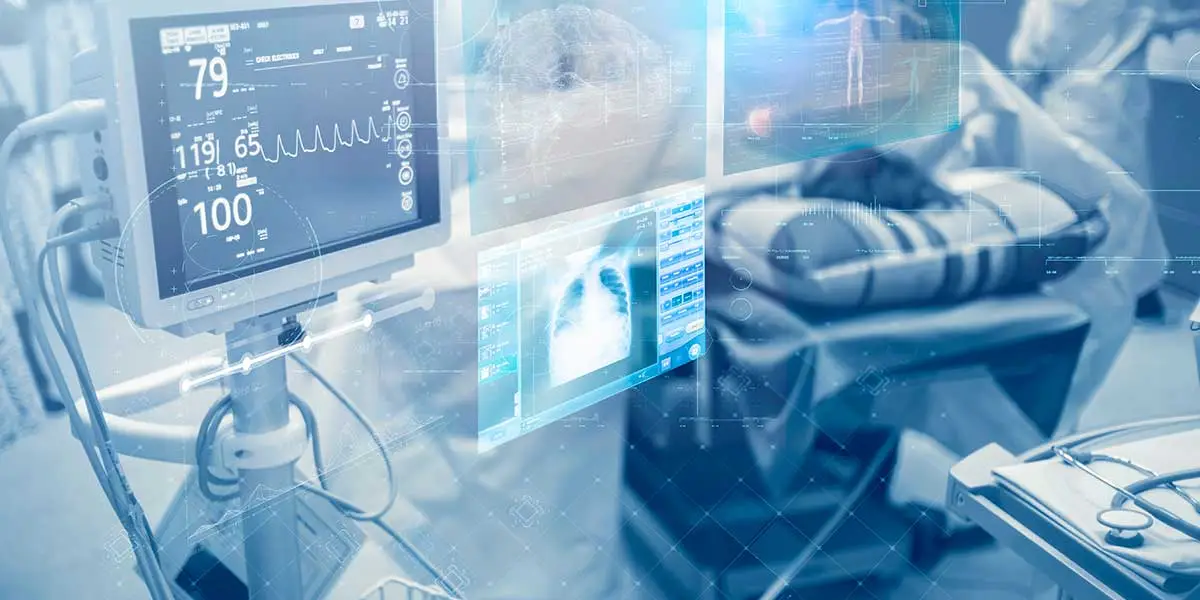
Aug 26, 2024
Blog Life Sciences Microelectronic Medical Implants Market – The Future of Healthcare
Microelectronic medical implants utilize integrated circuits (ICs) and microelectromechanical systems (MEMS) to cause physiological reactions in the body. They are designed to detect or diagnose bodily abnormalities and send electric signals to correct them as soon as they identify any disturbance. Microelectronics significantly enhances medical devices by reducing the size and power requirements of the sensors, actuators, cameras, and microprocessors used in surgical tools and patient care. Implantable medical devices offer solutions for diagnosing and monitoring various health conditions.
According to BCC Research, the global market for microelectronic medical implants will soar from $49.0 billion in 2024 to an impressive $85.1 billion by 2029! This represents a remarkable CAGR of 11.7% over the forecast period (2024-2029).

The global market for microelectronic medical implants is expected to grow from $49.0 billion in 2024 and is projected to reach $85.1 billion by the end of 2029, at a compound annual growth rate (CAGR) of 11.7% during the forecast period of 2024 to 2029.
Atrial fibrillation is the most frequent heart arrhythmia. It is a prevalent heart rhythm abnormality in the 21st century, causing cardiovascular disease (CVD) epidemics. AF leads to higher morbidity and mortality rates, straining healthcare systems. Proper intervention and prompt identification can reduce AF-related problems. Implantable pacemakers and defibrillators are designed to detect and treat moderate to severe arrhythmias in people.
Microelectronic medical implants are designed for a wide range of applications. These products are advanced with Bluetooth technology, recharge-free devices, and various applications that warn patients about their health issues and connect them with their physicians. Medical devices have undergone substantial evolution in this era of digitalization, becoming the most promising tools for cardiovascular, neurological, and other applications.
Microelectronic medical implant technologies are increasingly used to manage chronic diseases. Implantable devices have improved the quality of life and outcomes for patients with previously untreatable conditions, reduced the adverse effects of current therapy, and slowed or halted disease progression.
Older people are more prone to suffer from chronic ailments such as neurodegenerative disorders, CVDs, musculoskeletal disorders, and other diseases. According to the National Council on Aging, 80% of older people have at least one chronic disease, and 77% are afflicted with at least two chronic diseases. One in every four older adults experiences mental disorders, including depression, anxiety disorders, and dementia. The prevalence is expected to double to 15 million by the end of 2030.
The global market for microelectronic medical implants is divided into pacemakers, defibrillators, neurostimulators, hearing implants, and ocular implants.
One such company is Abbott, whose Aveir line of leadless pacemakers includes the Aveir AR atrial pacemaker, the Avier VR ventricular pacemaker, and the Aveir DR dual chamber pacemaker system.
Boston Scientific is one company offering defibrillators. ICDs include the Dynagen Mini ICD, the Emblem MRI S-ICD, the Inogen Mini ICD, the Momentum EL ICD, and the Perciva ICD.
For example, deep brain stimulators (DBS) focus on the brain regions in charge of motor control and are utilized to treat movement disorders such as dystonia, essential tremor, and Parkinson's disease. DBS enhances quality of life by substantially reducing tremors, stiffness, and other motor complaints by modifying electrical impulses.
Cochlear Ltd. offers two hearing implants: the Cochlear Nucleus and the Cochlear Osia System.
The use of microelectronic medical implants will undoubtedly accelerate over the coming decades owing to the increasing number of diseases, the growing geriatric population, and the demand for implantable devices for early diagnosis. Such factors are expected to drive the market for microelectronic medical implants.
Consider becoming a member of the BCC Research library and gain access to our full catalog of market research reports in your industry. Not seeing what you are looking for? We offer custom solutions too, including our new product line: Custom Intelligence Services.
Contact us today to find out more.

Heena Singh is a Senior Executive Email Marketer at BCC Research, with a master’s degree in computer applications. She specializes in content creation and data analytics.
In today’s fast-paced biomedical world, researchers and pharmaceutical companies...

Radiopharmaceuticals represent a cutting-edge frontier in modern medicine, offer...

Implantable Remote Patient Monitoring (IRPM) devices are revolutionizing healthc...

We are your trusted research partner, providing actionable insights and custom consulting across life sciences, advanced materials, and technology. Allow BCC Research to nurture your smartest business decisions today, tomorrow, and beyond.
Contact UsBCC Research provides objective, unbiased measurement and assessment of market opportunities with detailed market research reports. Our experienced industry analysts assess growth opportunities, market sizing, technologies, applications, supply chains and companies with the singular goal of helping you make informed business decisions, free of noise and hype.